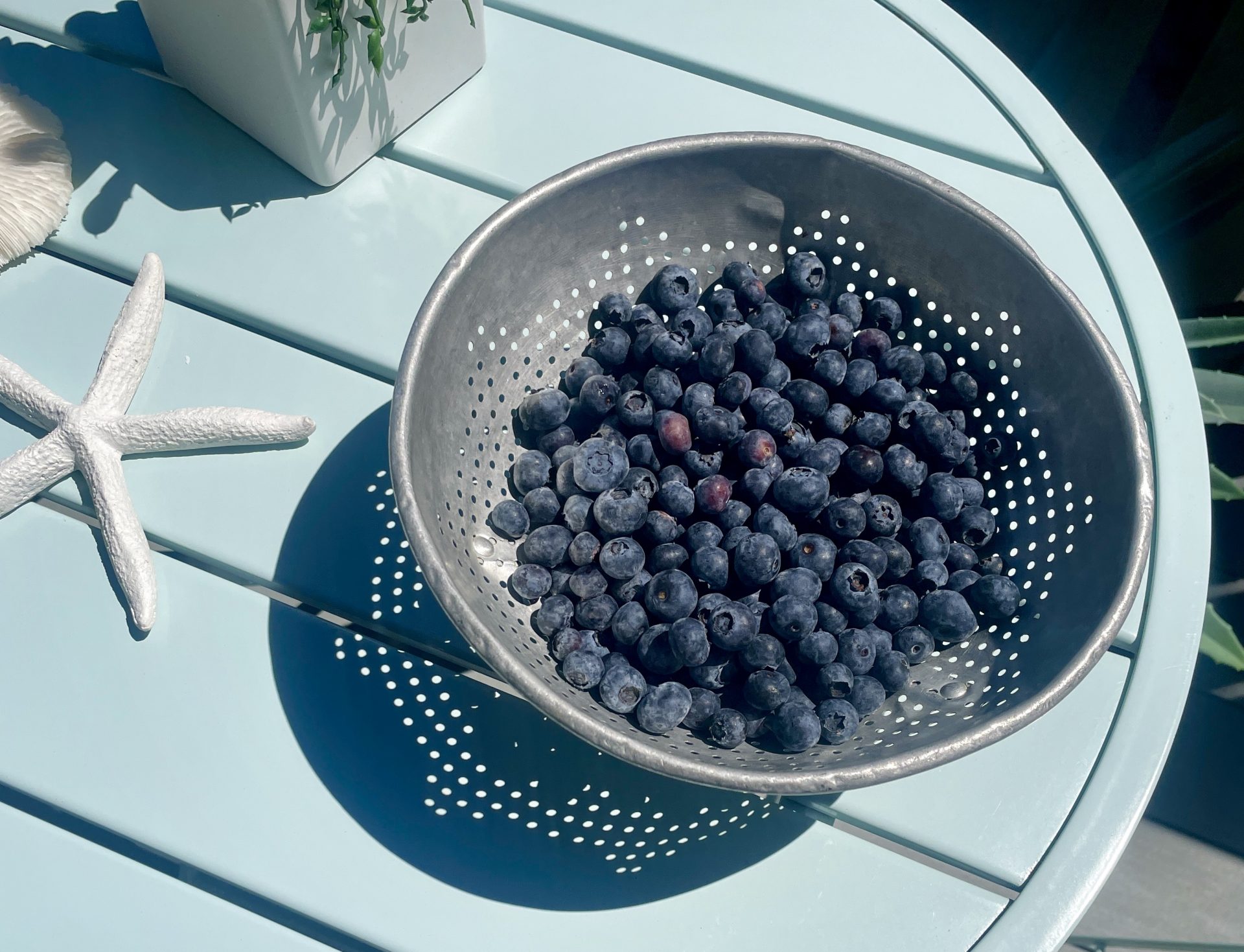Heirlooms: Revisited, The NY Times published two paragraphs from this essay online on Nov. 22, 2022. From a submission by Meg Kenagy, 76, from Portland, Ore.
“We cleaned out our mother’s kitchen, my sisters and I, in fits and starts, when she died 17 years ago. No one else wanted the old aluminum colander so it was uncontestedly mine. It was not a thing anyone would normally want — dented and unsteady on its three legs — but I wrapped it carefully into my suitcase, flew it 3,000 miles from Massachusetts to Oregon and unpacked it into my own kitchen cupboard.
The colander served for years, first my mother and now me, and it’s earned its scars. Draining and cutting potatoes into the colander, I see that my hands have become my mother’s hands, and I miss her. The only way I can go home now is in memory. Fortunately, this sorry little colander can take me there.”
My entire essay:
We cleaned out my mother’s kitchen, my sisters and I, in fits and starts, when she died 17 years ago. No one else wanted the old aluminum colander, so it was uncontestedly mine. It was not a thing anyone would want—dented, unsteady on its three legs—and there were plenty of teacups, magnets and suncatchers to go around. I wrapped it carefully into my suitcase, flew it 3,000 miles, and unpacked it into my own kitchen cupboard.
I took it for the memory of it, of course, there is no other value. I took it for the memory of my mother’s veined hands snapping green beans and hulling strawberries. I took it for the memory of me, draining boiled potatoes in it, night after night, year after year.
It was the 1950s and ’60s and in New England, in the houses I knew, dinner was served every night. At dinner, we were potato people. My mother’s parents were Irish immigrants, and my grandfather, stunned by the rich New England soil, had turned our front yard into a potato field. (It was years before I realized how surprising this must have been in a well-lawned suburb.)
I was the peeler of the potatoes, the oldest—never the cook or baker. Just a pair of hands in my mother’s service.
The colander served for years, long after I left home, earned its scars. How many pounds of potatoes did it drain? How many blueberries did it wash? Innumerable, uncountable. Hundreds, thousands. And when I went home in my mother’s later years, I drained spaghetti and washed lettuce in it.
I still peel a fine potato, but my children are grown with their own kitchens, and I’ve not much reason to boil a potato these days, unless someone wants a potato salad.
Then I see, draining and cutting potatoes into the colander, that my hands have become my mother’s hands, diminished, aged, and I miss her and I miss her cluttered kitchen and the only way I can go home is in memory. Fortunately, this sorry little colander, can take me there.
